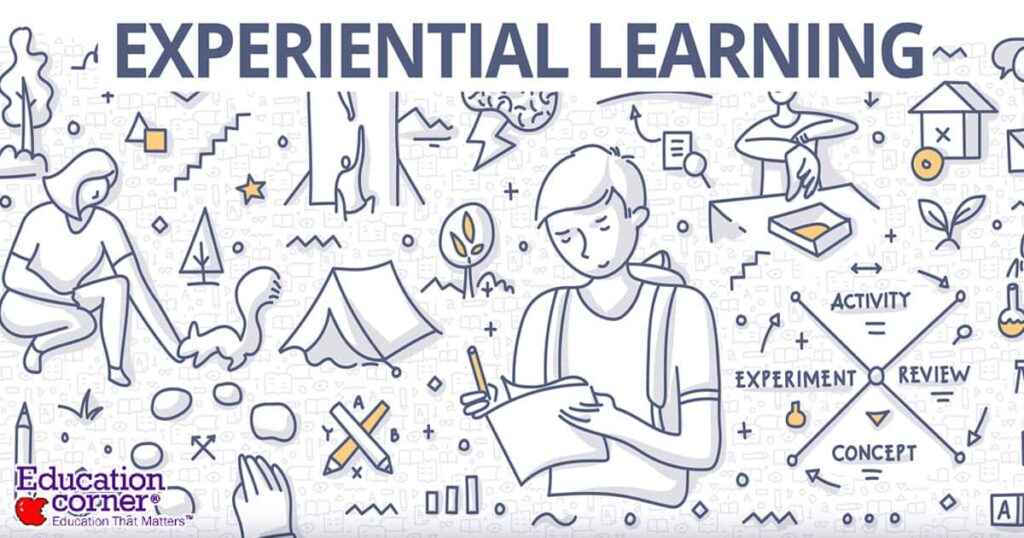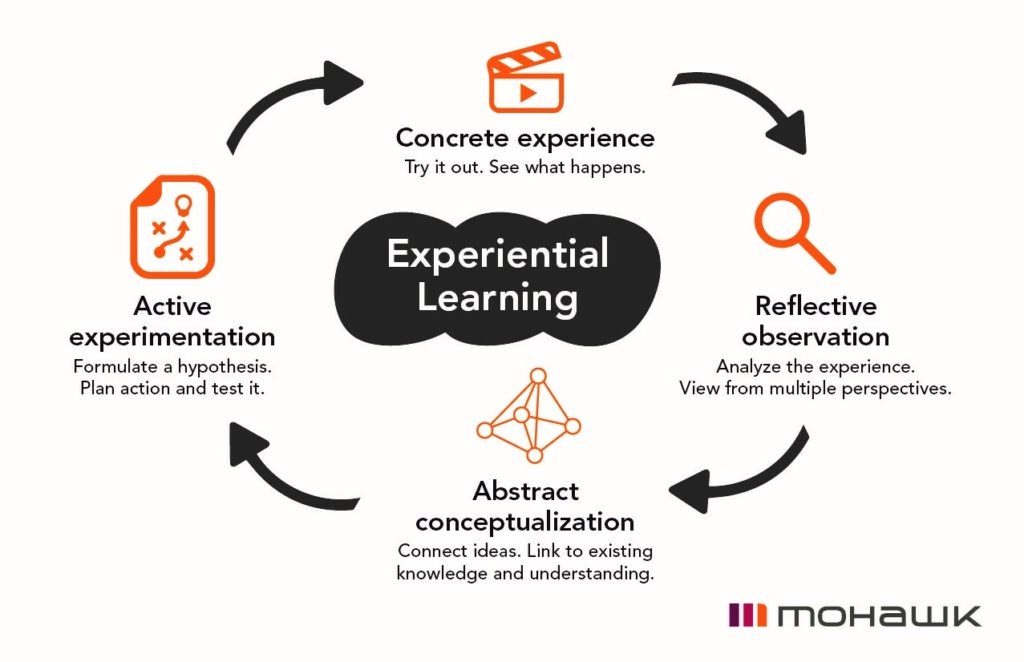What is experiential learning? How does this relate to my topic on basic nutrition and daily diets?
“Experiential education is a philosophy that informs many methodologies in which educators purposefully engage with learners in direct experience and focused reflection in order to increase knowledge, develop skills, clarify values, and develop people’s capacity to contribute to their communities.” ASSOCIATION FOR EXPERIENTIAL EDUCATION

Experiential learning is a type of learning in which people participate in first-hand activities related to a topic of interest and then reflect on what they’ve experienced. Experiential learning can take several different forms, ranging from hands-on chemical experiments in the lab to foreign exchange programmes that teach about diverse cultures. One of the key advantages of experiential learning is that the learner is not simply given knowledge to acquire, but also takes charge of their own learning and learns about the topic firsthand. Experiential learning has been found to be successful at keeping learners motivated throughout the learning process because they are the ones who are involved in the environment.
An important aspect of experiential learning is Kolb’s learning cycle. The cycle depicts 4 processes: experiencing, reflecting, thinking, and acting. 1) Concrete Experience is the initial step for the learner. When attempting to bake a cake, a student will interact with the materials as well as several baking tools. The student might try mixing the ingredients together or even bake a muffin. The learner moves on to stage 2), Reflective Observation, as a result of this experience. The learner evaluates their experience, determining what went well and what didn’t. For example, the student may have forgotten to add sugar to the bowl of ingredients, resulting in a nutritious but unsweet cake, or they may have overbaked the cake and burned it. Based on this evaluation, the learner advances to the third step, 3) Abstract Conceptualization, when they reflect on their mistakes and plan to produce a better cake next time. This leads to step 4) Active Experimentation, in which the learner tries out various ways depending on their prior experience. These four steps represent the various stages of experience learning.

I believe that this learning process does align with the topic that my pod has chosen for interactive learning resource which is on basic nutrition and daily diets. Experiential learning is a process that is more prevalent when learning skills and life lessons. Dieting is a learning process. You have to figure out which specific diet/food is right for your body and to do so you must go through a process of trying different diets, such as a gluten free-diet or a low-carbohydrate diet. Based on my pods topic on nutrition and daily diets, experiential learning along with hands-on assignments, I believe our learners will gain a knowledgeable amount of basic understanding of nutrition and a balanced diet.
Here’s a video that further explains this topic on experiential learning!
References
ELBS. (2020, May 15). This is Experiential Learning [Video]. Youtube.
McLeod, S. (2013). Kolb’s learning styles and experiential learning cycle. Simply Psychology. https://www.simplypsychology.org/learning-kolb.html